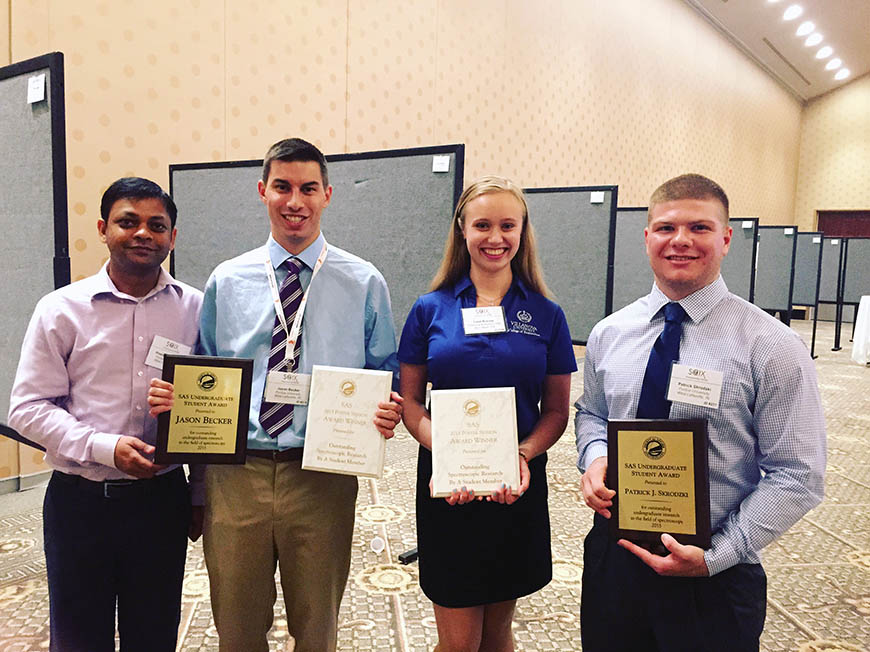Villanova Engineering Undergraduate Wins National Prize

Liesl Krause ’16 EE took home an SciX industry award for her research on “Cold Atmospheric Plasma.”
by Daniel Fetsko ’19 CE
In spring 2015, U.S. News & World Report conducted a survey of administrators at more than 1,500 colleges and universities nationwide, asking them which institutions displayed “stellar examples of undergraduate research/creative projects.” Villanova University made the list of the top 50 schools, and in the past month, its students—engineering majors in particular—have proved worthy of that distinction.
On September 23, nearly 75 undergraduate summer researchers, 17 of them engineering majors, presented their work at Villanova’s annual Undergraduate Research Poster Day. Among them was Liesl Krause, an Electrical Engineering senior who spent the summer in West Lafayette, Indiana, working on “Cold Atmospheric Plasma” with post- doctorates and faculty at Purdue University. Less than a week after Villanova’s event, Liesl traveled—with financial support from the Department of Electrical and Computer Engineering— to Providence, Rhode Island, where she attended the 18th annual SciX conference. Hosted by the Federation of Analytical Chemistry and Spectroscopy Studies, this professional industry event provides student participants with a venue not only to present their research, but also to meet leading scientists in their fields and develop professional networks.
During the competition portion of the conference, Liesl, who is member of the Society for Applied Spectrometry (SAS), received multiple awards for “Cold Atmospheric Plasma” in the category of Applied Spectrometry. In addition to a $300 SAS travel grant, she was recognized with the SAS Excellent Research by a Student Member in Spectroscopic Research award. Of the 42 participants in the category, only three, including Liesl, were undergraduates. It is a testament to Liesl and the strength of Villanova’s engineering program that she was able to outperform so many graduate students in her field.
Currently, Liesl is looking toward the future as she applies to doctoral programs in biomedical engineering. She hopes to continue her research and further develop her project to turn it into useful technology for society.
